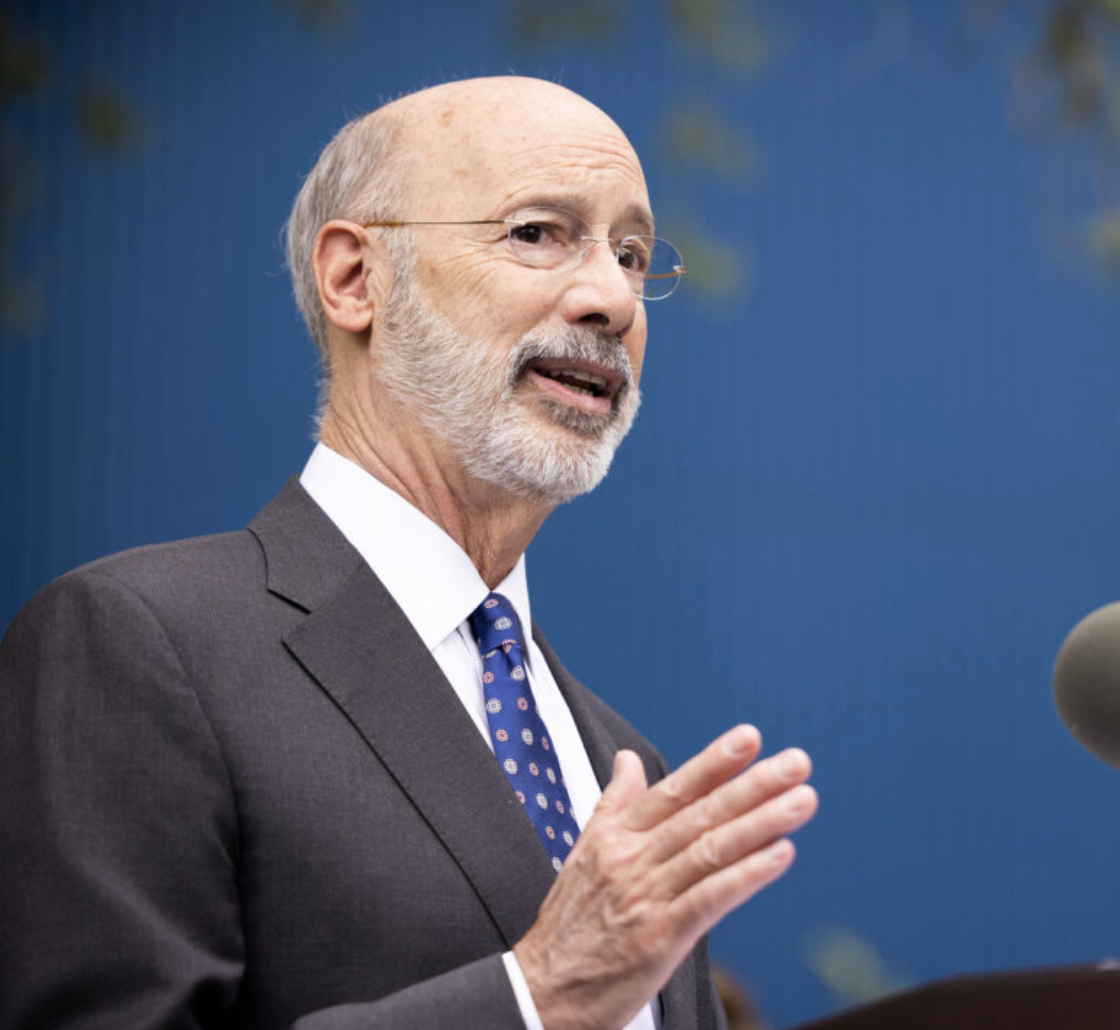The Wolf administration wants the Keystone State to have a carbon-free electric grid by 2050. But not all Pennsylvanians are amped by the idea.
“I think it’s very good for Pennsylvania that Wolf has only one more year left in his term of office and he can’t run for governor again,” says chairman of the Pennsylvania Environmental Resources and Energy Committee Daryl Metcalfe (R-Butler County). “These types of policies are just going to drive up the cost of energy that we all need in our daily lives.”
Gov. Tom Wolf (D) announced the Pennsylvania Climate Action Plan 2021 on Wednesday, calling for statewide action on climate change by all sectors of the state.
“As thousands of Pennsylvanians try to recover from historic flooding and tornadoes related to the remnants of Ida this month, the message is clear: we must move now out of a reactive mode on climate change,” Wolf said.
The Wolf administration’s Department of Environmental Protection echoed the governor.
“As a result of increasing greenhouse gas emissions from human activity, Pennsylvania’s average temperature has risen nearly 2 degrees Fahrenheit since 1900, bringing more heatwaves and increased intensity of extreme weather events, including heavy rainfall and flooding,” said DEP in a statement ahead of the climate plan announcement. “Pennsylvania is on course to climb another 5.9 degrees by the middle decades of this century.”
There is no data showing any increased intensity in extreme weather. And there has been no increase in flooding.
“These conclusions of the IPCC, indicate that it is simply incorrect [emphasis in original] to claim that on climate time scales the frequency or intensity of extreme weather and climate events has increased for: Flooding, drought (meteorological or hydrological), tropical cyclones, winter storms, thunderstorms, tornadoes, hail, lightning or extreme winds,” writes Professor Roger Pielke, Jr. of the University of Colorado.
There are 18 recommendations in Wolf’s Climate Action Plan. They include updating and enforcing building codes, improving energy efficiency in the residential and commercial sectors, increasing the use of on-site solar power in those sectors, adding to the number of electric vehicles, and using programs and incentives to increase energy efficiency in agriculture.
“We’ll get our biggest greenhouse gas emission reductions from creating a carbon-free electricity grid that uses renewable and nuclear energy,” said DEP Secretary Patrick McDonnell at a virtual press conference.
“In a world of wishful thinking, policy changes should be based on sound science so that new regulations are reasonable, cost effective, and achievable with existing technology,” says David N. Taylor, president and CEO of Pennsylvania Manufacturers’ Association.
“Gov. Wolf’s ‘Action Plan’ fails all of these bright-line tests in moving the goal posts on Pennsylvania’s productive sector,” says David Taylor. “Our manufacturers require reliable and affordable energy to add value and satisfy customers, and private sector innovation has led to dramatic decreases in energy-related emissions over the past two decades.”
As these innovations advance, Taylor says we will continue to drive economic growth while improving our environment, all without unnecessary and costly intervention from Wolf Administration.
“Among those who can’t afford such absurd illusions are more than 8,000 workers whose livelihoods depend on coal-fired plants in Indiana and Armstrong counties and hundreds of businesses and millions of consumers whose profitability and wealth would be eroded by higher electricity prices resulting from Wolf’s so-called green grid,” says Gordon Tomb, senior fellow for the Commonwealth Foundation.
Leo Knepper at Citizens Alliance of Pennsylvania (CAP) agrees.
“Wolf is living in some sort of an alternate reality if he thinks that something like a zero-carbon energy grid is desirable or realistic for Pennsylvania,” says Leo Knepper, political director for Citizens Alliance of Pennsylvania (CAP). “A paper released in 2016 estimated that the clean energy mandates in place at that time would cost the commonwealth over $700 million in higher electricity costs and 11,000 jobs by 2025.”
The impact of the types of mandates the governor is now suggesting would be far worse, says Knepper.
“Between 2000 and 2018, carbon emissions from energy production dropped by 20 percent, and that’s not due to new mandates,” says Knepper. “Carbon output dropped because natural gas became more price competitive and it is a cleaner-burning fuel.”
As lower-emission energy generation becomes more competitive on a price per kilowatt-hour, Knepper says its consumption will increase and carbon output will naturally decrease further.
“Government trying to front-run the technology and force adoption will result in much higher costs, job losses, and a lower standard of living overall,” says Knepper.
Earlier this year, U.S. Steel announced its plans to cancel a $1.5 billion investment in Mon Valley Works, a decision that affected 3,000 workers. Critics blamed it on the environmental policies from Wolf and President Joe Biden.
“The loss of this $1.5 billion project is a devastating blow to the economy of southwestern Pennsylvania and a slap in the face to the hard-working blue-collar families who were counting on these jobs,” said Pennsylvania state Republican legislators in a May statement. “It is a clear reminder that we need a commonsense, cooperative strategy on energy and the economy.”
“What they announced is the kind of socialist pie-in-the-sky that fits well with Biden’s agenda and AOC’s agenda and The Squad’s agenda from D.C.,” says Metcalfe. “I think Wolf is certainly trying to attract attention from Biden so that when he’s done harming Pennsylvania through his gubernatorial work that he may be able to attract Biden to try to bring him into his administration.”

